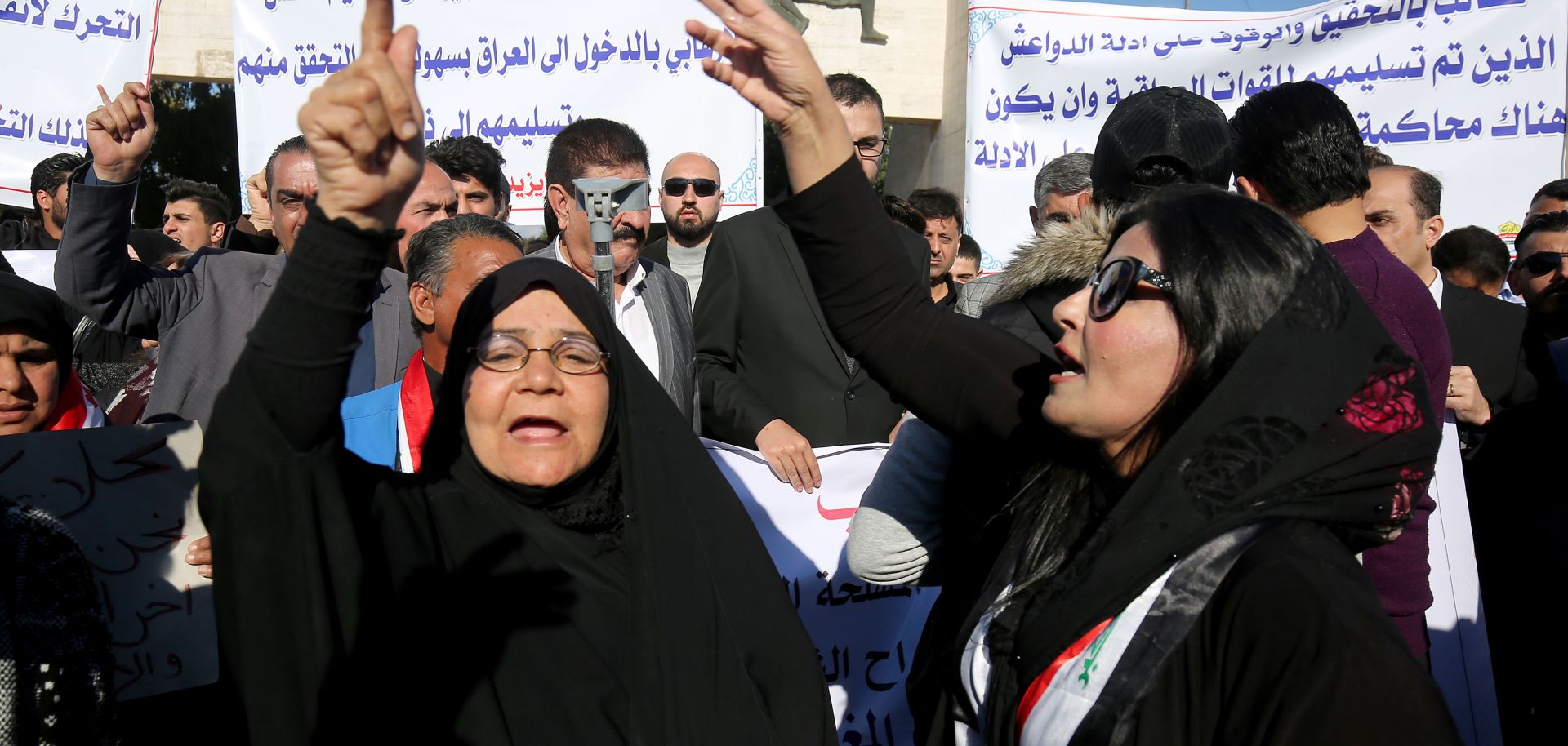COLUMNS
The Erasure of the Islamic State's Caliphate Won't Ensure Its Defeat

Mar 5, 2019 | 10:15 GMT

Iraqis demand investigations March 1, 2019, in Baghdad into the discovery of a mass grave near the Islamic State's last bastion in eastern Syria. The Islamic State core could re-emerge as a serious threat.
(AHMAD AL-RUBAYE/AFP/Getty Images)
Highlights
- The Islamic State core is losing the final sliver of its self-declared caliphate.
- State sponsorship, sectarian violence and a power vacuum had allowed the Islamic State to flourish.
- Unless these external factors are addressed, the Islamic State core could re-emerge as a serious threat, especially as the United States turns its attention elsewhere.
Subscribe Now
SubscribeAlready have an account?
